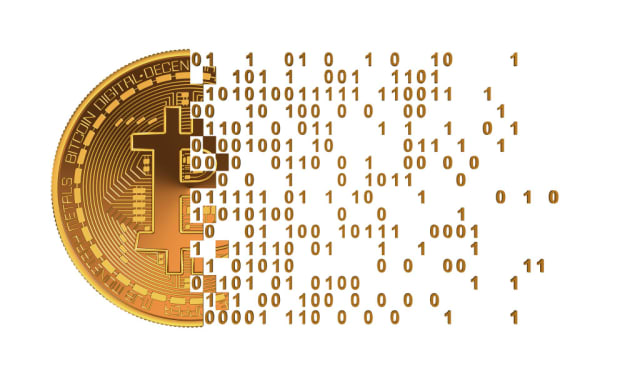CAN BITCOIN AVOID FORMAL GOVERNANCE?
Bitcoin market

As we have seen, for some's purposes, one of the principal allures of Bitcoin and other digital currencies lies in their decentralized nature, which limits the impact of coercive foundations (like States and National Banks) on money-related arrangements. Anything that the benefits of the basic freedom advocate contention, it is questionable that Bitcoin can administer out and out with any proper administration or confidence in a few favored entertainers.
Allow us to start by taking note that the first Bitcoin source code, initially drafted under the name of Satoshi Nakamoto, now contains an extraordinary number of significant standards, which meaningfully affect the financial matters of Bitcoin: the diminishing stockpile of Bitcoins to be printed, the cap on the size of exchange blocks, and so on.
Are these principles totally permanently set up, unchanging? Also, if not, who has the ability to adjust them? This is the issue at the core of the Bitcoin administration. While Bitcoin has for sure no conventional administration (there is no constitution or establishing standards setting dynamic techniques), a bunch of practices has arisen, in the exchange of three classes of entertainers: center designers, diggers, and clients.
Taking over from Nakamoto's underlying drafting of the convention, the center improvement group partakes in a kind of moral power over the local area, which endows it with specialized choices with many open-source advancement projects, Bitcoin follows a "dictatorial robotic" model, where anybody is allowed to contribute code, yet a little gathering of co-selected designers (the center engineers) can, at last, conclude which changes get carried out in the product.
Notwithstanding, it is essential to take note that the Bitcoin center improvement group can't force any changes to the current Bitcoin convention without the assent of basically a significant number of diggers or clients. Since Bitcoin is open-source programming, any client could decline to refresh its product and keep on utilizing its more seasoned variant, or propose an elective change to move the product improvement somewhere new, subsequently making a "fork" (an elective part of programming improvement). On account of Bitcoin, this can happen basically through two components.
The first is known as a "delicate fork", and comprises adding stricter principles to figuring out which blocks or exchanges are substantial. A delicate fork can be forced on the current organization with the joint effort of diggers with a simple greater part of hash-power, which can implement the new guidelines by dismissing blocks or exchanges that don't adjust to the change.
The second is known as a "hard fork", which addresses the basic qualities of the convention, for example, block construction or trouble rules. As it isn't in reverse viable, a hard fork requires all full hubs to redesign, or the blockchain could part between clients utilizing the new refreshed form and those utilizing the more seasoned rendition.
At long last, in the Bitcoin improvement local area, a standard type of building agreement around a proposed change has arisen as reports called Bitcoin Execution Proposition (BIPs).
For quite a while, these issues of administration were generally disregarded, fundamentally because of the possibility that the engineers' job was simply specialized and far-fetched to cause profound philosophical disparity.
Over the most recent couple of years, notwithstanding, the Bitcoin block size discussion has uncovered the significance of administration and what de Filippi and Loveluck (2016) call the "imperceptible legislative issues" of Bitcoin. To be sure, a profound conflict partitions the Bitcoin people group on the issue of Bitcoin's block size cap, a computational bottleneck that has progressively deteriorated exchange charges and handling delays with Bitcoin's benefit in prominence. The main gamble of a split happened in 2015 when some Bitcoin center designers proposed a fork called "Bitcoin XT", expecting to expand its block size from 1 to 8 megabytes. After much discussion, the Bitcoin people group remained faithful to the first Bitcoin convention (charged "Bitcoin Center"), in this manner staying away from a distinct split. In any case, the endeavors of the reformists were sought after, and during 2016 and 2017 different fork propositions have been made, either by consortiums of excavators or clients. To succeed, these change propositions by and large require arriving at a specific reception pace of a certified greater part of excavators or clients before a given date. While the cycle is as yet progressing, and since just a specific proposition (Segwit) got embraced, this interaction stays intricate and unsafe for the trustworthiness of Bitcoin's blockchain. Furthermore, for sure, it has previously produced its most memorable significant parted: in August 2017, following quite a while of Bitcoin scaling contention, a gathering of clients effectively hard-forked Bitcoin, as well as its entire exchange history, into another digital money with a block size of 8Mb, named Bitcoin Money. While the hard fork didn't make the pace of Bitcoin crash, as some dreaded, it in any case showed that the gamble of a Bitcoin break was an undeniable chance.
The gamble of factions can as of now demonstrate tricky with regard to free and open-source programming, where forks represent the gamble of dissipating designers and clients between inconsistent activities, undermining their maintainability. Be that as it may, it is considerably more hazardous on account of money, where organization impacts are vital while a given piece of programming can be helpful to a tiny specialty of clients, cash can work thusly assuming an adequate number of individuals will trade it or acknowledge it for the purpose of installment. These splits could fundamentally debilitate Bitcoin by decreasing its engaging quality as a mechanism of trade. Honestly, as of recently, the presence of an extraordinary number of elective digital currencies has obviously not checked client energy for Bitcoin. Nonetheless, there is a huge gamble that the continuous duplication of Bitcoin clones, (for example, "Bitcoin Money", "Bitcoin Gold", and "Bitcoin Precious stone"… ) will comprise a variable of disarray for the more extensive public, consequently undermining its capacity to be utilized as a standard vehicle of trade.
Hence, not exclusively is Bitcoin, not oneself overseeing, fundamentally decentralized cash that a portion of its allies would maintain that it should be; however, Bitcoin's casual administration, tormented by the gamble of factions, likewise comprises a huge danger to its supportability as money.
A second critical test of the possibility that digital currencies can get away from administration or focal specialists is connected with the specific way exchange security is accomplished with Bitcoin. Bitcoin's "evidence of-work" security is significantly founded on confiding in a greater part of hubs in the framework: in his 2008 paper, Nakamoto takes note of that confirmation of-work security will actually want to oppose aggressors "as long as genuine hubs by and large control more computer chip power than any collaborating gathering of aggressor hubs". Maybe at first this limit of half appeared to be sufficiently high, guaranteeing that it can only with significant effort be reached. Notwithstanding, in 2014, a consortium (or "pool") of excavators called GHash.io had the option to think 51% of the all-out computational power Subsequently, this pool of diggers possibly been able to dodge the security of Bitcoin's installment framework, and spend similar coins two times or reject contending excavators' exchanges. That this grouping of forces didn't keep going long because of the consideration of individual diggers, who chose to pull from the pool out of a worry for Bitcoin's trustworthiness. Because of the analysis, the administrators of GHash.io gave an assertion and resolved to "play it safe to forestall coming to 51% of all hashing power".
Hence, as others have noticed, Bitcoin's focal security highlight "relies upon the generosity of a couple of individuals whose names no one knows". Could the Bitcoin people group at any point depend on the generosity of individual excavators and the social obligation of mining pools to deflect an assault? Or on the other hand, should mining pools be forestalled to obtain such a position? The last choice would probably include some sort of antitrust guideline, like regular antitrust regulations. It would require, consequently, a kind of focal equipped power to forestall conspiracy among excavators.
Thusly, either the Bitcoin people group holds its own freedom supporter type of "administration" by the rivalry between forks, with gambles for its manageability, client base, and security, or it perceives that some level of formal focal administration is inescapable. In any case, that acknowledgment prompts what Lehdonvirta bills as the "blockchain's administration Catch 22": assuming that Bitcoin clients address the issue of administration by confiding in a focal establishment to make the standards, why do they require a decentralized digital currency any longer?
In synopsis, the predominant doubt against administration among the Bitcoin people group has rolled out any improvement in its algorithmic guideline undeniably challenging and long to accomplish and forestalls setting up any primary assurance against the agreement by excavators to break its verification of work security. Bitcoin's casual administration model doesn't passage very much contrasted with its guarantee to give a dependable option in contrast to the purportedly imperfect unified financial framework.
If you like to get rich with bitcoin you can get access from
>>Here<<How To Get Rich With Bitcoin Even If You Have No Clue About Technology
Do you like to Reap Massive Crypto Profits?
About the Creator
Sithum Chathumina
I am an experienced cryptocurrency trader and I am an expert in trading






Comments
There are no comments for this story
Be the first to respond and start the conversation.